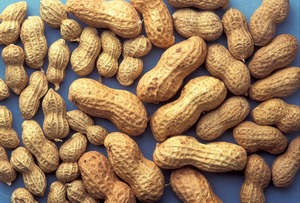Could eating nuts every day improve your health and reduce your risk of developing certain diseases? A Dutch study from Maastricht University published in the International Journal of Epidemiology found a positive correlation. In a 10-year study of more than 120,000 men and women between the ages of 55 and 69 years, people who ate at least 10 grams of nuts or peanuts a day had a 23% lower chance of death.
Specifically, there was a decrease of 45% of neurodegenerative disease, of 39% for respiratory disease, and of 30% for diabetes.
“Peanuts showed at least as strong inverse associations as tree nuts, but peanut butter did not,” Piet A. van den Brandt, PhD, and Leo J. Schouten, MD, PhD, wrote. “Meta-analyses showed consistent risk reductions for cancer and respiratory mortality.”
However, a recent study in Nutrition Reviews determined that current evidence of the nut consumption’s disease-prevention role remains inconsistent. Researchers reviewed 36 epidemiological studies and clinical trials that reported an association between nut consumption and type 2 diabetes or specific cancers.
Overall, they determined that nut consumption may play a role in reducing the risk of developing colorectal cancer, endometrial cancer, and pancreatic cancer. However, there was no association found with type 2 diabetes or other types of cancers, including breast cancer, gastric cancer, leukemia, ovarian cancer, and prostate cancer.
“Additional studies are needed to more accurately assess the relationship between nut consumption and the prevention of individual types of cancer, given the scarcity of available data,” the authors said.
However, what is known is that many nuts do supply a great deal of nutrients that our bodies require each day. According to GoodFood, there are varying benefits of nuts, depending upon the type of nut you are eating.
 As far as peanuts are concerned, whfoods.org states “Peanuts are rich in monounsaturated fats, the type of fat that is emphasized in the heart-healthy Mediterranean diet. Studies of diets with a special emphasis on peanuts have shown that this little legume is a big ally for a healthy heart. In one such randomized, double-blind, cross-over study involving 22 subjects, a high monounsaturated diet that emphasized peanuts and peanut butter decreased cardiovascular disease risk by an estimated 21% compared to the average American diet.”
As far as peanuts are concerned, whfoods.org states “Peanuts are rich in monounsaturated fats, the type of fat that is emphasized in the heart-healthy Mediterranean diet. Studies of diets with a special emphasis on peanuts have shown that this little legume is a big ally for a healthy heart. In one such randomized, double-blind, cross-over study involving 22 subjects, a high monounsaturated diet that emphasized peanuts and peanut butter decreased cardiovascular disease risk by an estimated 21% compared to the average American diet.”
Following is a table from the USDA National Nutrient database that depicts the nutritional value of peanuts (per 100g):
| Principle | Nutrient Value | Percentage of RDA |
|---|---|---|
| Energy | 567 Kcal | 29% |
| Carbohydrates | 16.13 g | 12% |
| Protein | 25.80 g | 46% |
| Total Fat | 49.24 g | 165% |
| Cholesterol | 0 mg | 0% |
| Dietary Fiber | 8.5 g | 22% |
| Vitamins | ||
| Folates | 240 µg | 60% |
| Niacin | 12.066 mg | 75% |
| Pantothenic acid | 1.767 mg | 35% |
| Pyridoxine | 0.348 mg | 27% |
| Riboflavin | 0.135 mg | 10% |
| Thiamin | 0.640 mg | 53% |
| Vitamin A | 0 IU | 0% |
| Vitamin C | 0 | 0% |
| Vitamin E | 8.33 mg | 55.5% |
| Electrolytes | ||
| Sodium | 18 mg | 1% |
| Potassium | 705 mg | 15% |
| Minerals | ||
| Calcium | 92 mg | 9% |
| Copper | 1.144 mg | 127% |
| Iron | 4.58 mg | 57% |
| Magnesium | 168 mg | 42% |
| Manganese | 1.934 mg | 84% |
| Phosphorus | 76 mg | 54% |
| Selenium | 7.2 µg | 13% |
| Zinc | 3.27 mg | 30% |
| Phyto-nutrients | ||
| Carotene-alpha | 0 µg | — |
| Crypto-xanthin-beta | 0 µg | — |
| Lutein-zeaxanthin | 0 µg | — |
